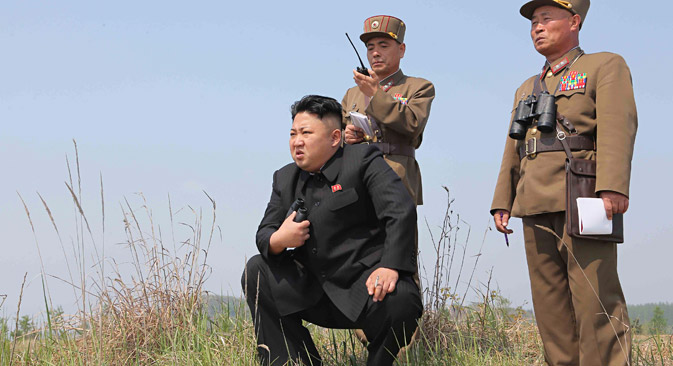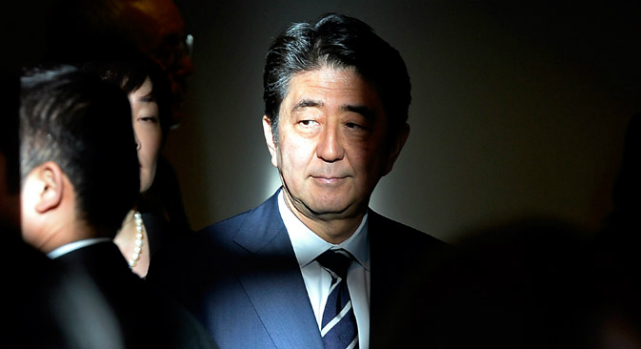The impact of Kim Jong-un skipping Victory Day

North Korean leader Kim Jong Un (C) guides the multiple-rocket launching drill of women's sub-units under KPA Unit 851, in this undated photo released by North Korea's Korean Central News Agency (KCNA). Source: Reuters
Kim Jong-un’s decision to not attend the Victory Day Parade in Moscow on May 9 grabbed a lot of public attention in Russia.
Runet (the Russian segment of the Internet) was flooded with sarcastic jibes like “I'm not going to visit this dictator – Putin.” The parody twitter account President’s Thoughts mock tweeted the North Korean leader as saying, “I have no time ... I urgently need to shoot a couple of thousand musicians,” referring to Yonhap's unconfirmed news report claiming that Kim Jong-un allegedly ordered the execution of four musicians of the national orchestra.
At the same time, the Kremlin declined to comment on the decision. Dmitry Peskov, a spokesman for the Russian President, told reporters that the leader of North Korea, whose visit to Moscow had been planned earlier, “decided to stay in Pyongyang. He cannot be present [in Moscow]. The decision was conveyed through diplomatic channels.”
When asked about when a meeting between Vladimir Putin and Kim Jong-an could be held, Peskov said, “There are no concrete plans yet.”
The Kremlin also denied speculation that Moscow could have received complaints from abroad about the undesirability of the presence of the North Korean leader at the Victory Day celebrations. “No, of course not,” Peskov said.
Reasons for skipping the event
In an interview with RBC, Konstantin Khudolei, a professor of international relations at the St. Petersburg State University, lists several reasons why the North Korean leader may have skipped the event.
Following the example of his father and grandfather, Kim Jong-un may have decided to continue the tradition of “non-participation” in international events, where he is not the top figure, or at least one of the two or three top figures, according to Khudolei.
“At the celebration of the 70th anniversary of the Victory in World War 2, Kim Jong-un would definitely not have been among the most important figures. Many visitors, especially Xi Jinping, would have occupied a much higher place in the hierarchy,” Professor Khudolei says.
He adds that there is a difference in the perception of the significance of 1945. “From the point of view of Pyongyang, the main arena of World War II was not Europe, but Asia,” Khudolei says. “The head of the aggressive bloc was Japan, not Nazi Germany. Accordingly, the main hero is Kim Il-sung, not the Soviet army. Therefore, a trip to Moscow would imply, to some extent, recognition of the importance of the European theater of war. It is most likely that the current North Korean leader was not ready to acknowledge this.”
Professor Khudolei also believes that relations between North Korea and Russia are more tactical than strategic. “After the execution of Jang Sung-taek, Kim Jong-un has an uneasy relationship with China,” he says. “Of course, relations with the US remain tense. I have no doubt that Pyongyang is very closely monitoring the improvement of relations between Washington and Havana. I think that the main objective of the young Korean leader is reconciliation with Washington. The visit to Moscow would not have helped him to improve relations either with Beijing or, even more so, with Washington.”
No impact on bilateral relations
Politicians believe that the no-show of the North Korean leader will not affect bilateral relations. “It in absolutely no way calls into question the existing agreements,” says Minister for Development of the Far East Alexander Galushka. “In my opinion, these things are completely unrelated.”
The minister referred to South Korea, whose president had also decided not to attend the ceremony. “However, when we were in Seoul, the question of a meeting of the intergovernmental commission on trade and economic cooperation, which had been not held for two years, was finally settled,” Galushka says, adding that Victory Day celebrations and trade are two different issues.
Analysts and politicians agree that the no-show of Kim Jong-un will not affect relations between Russia and North Korea, and, most likely, will remain a small episode in the history of Russian-Korean relations.
The writer is the Editor of Korea Focus, RBTH’s Korean language edition.
All rights reserved by Rossiyskaya Gazeta.
Subscribe
to our newsletter!
Get the week's best stories straight to your inbox
